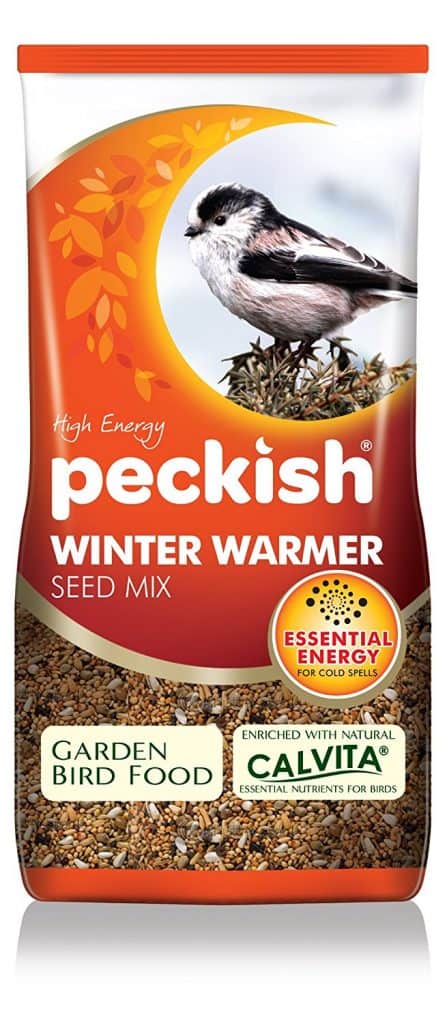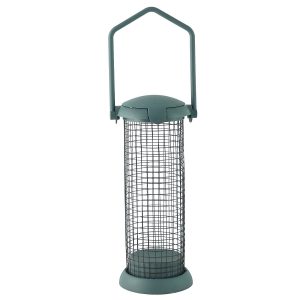 Lots of us birdkeepers also love to encourage garden birds to our gardens and watch them in their natural environment. In winter, the urge to give them a hand is even stronger, even if winter isn’t particularly harsh. So, what can we feed garden birds in winter that will help them?
Lots of us birdkeepers also love to encourage garden birds to our gardens and watch them in their natural environment. In winter, the urge to give them a hand is even stronger, even if winter isn’t particularly harsh. So, what can we feed garden birds in winter that will help them?
Who eats what?
Most of us have a good idea what birds come to the garden. We have a lot of blue tits, great tits and coal tits, dunnocks and sparrows as well as a resident robin and blackbird pair. We sometimes see thrush, chaffinches and even more occasionally the likes of bullfinches and chiffchaffs. There’s a big graveyard at the bottom of the street so I think lots of them live there and visit the gardens when they know there is food available.
By having a bit of an idea who eats what, you can know what is good to stock your feeders with. For example, sparrow and finches are seed eats while the tits love fat balls and thrushes and robins enjoy mealworms and even a little fruit. Starlings, jackdaws and other bigger birds will eat almost anything.
Getting the right seeds
You can buy garden bird seed mixes, some which are even aimed towards certain bird groups. These are an ideal way to offer a range of food to the birds and they can select what they want. Straight sunflower seeds or sunflower hearts are also popular. The hearts are less messy as the birds simply eat them, while the black sunflower seeds are usually cheaper.

Niger or Nyger seeds are popular with birds like goldfinches and these seeds are rich in oil and excellent for winter feed. Only birds with delicate bills will be able to eat them and you will need a special feeder for them – they will fall straight out of a normal seed feeder!
Other popular foods

Peanuts have been a staple of bird feeders for years and with food reason, especially in the winter. Because they are high in proteins and oils, they help the birds stay healthy and add a little fat to their bodies, crucial for surviving cold spells. Peanut feeders are usually a mesh style feeder that allow birds to peck through the bars to get the nuts.
Mealworms are another easy to offer foodstuff that some birds will thank you for over winter. These are the dried version of the live food many of us use for our aviary birds and offer good protein while being easy to feed. You can also get fat balls that contain nuts and mealworms for added benefits.
Bird tables
As well as hanging feeders, many people put food out on bird tables for birds to select what they want. The right location is important to encouraging birds to the tables and also you do need to watch the hygiene of them. Birds can pick up illnesses from bird tables if they aren’t regularly cleaned, you can see more about that here.
You can put fruit onto bird tables for some birds that enjoy it such as apples, plums and pears. Half them and pop them on the table or even impale them on strong bushes around the bird feeder. Robins, thrush and blackbirds will particularly enjoy this.
You can put some leftovers out for birds but be a little careful. Don’t put out anything that is salted or flavoured as this won’t agree with the birds. Fats should be avoided as they can cling to the bird’s feathers and stop them flying, leaving them vulnerable to predators.
You can put out fried fruit, cheese, cooked rice and even leftover cat or dog food. One word of caution, though – you may attract more than birds to the feeder with some of this so be careful, my neighbour once had rats on the feeder when she put out some leftover meat!
How much should you feed garden birds?
There is sometimes the idea that you shouldn’t feed garden birds as they should find enough food naturally. While this might be the case, I think it doesn’t hurt to offer a supplement, especially during winter. Plus, the reward of them visiting the garden is definitely worth it.
In terms of portions, only put out what can be eaten during the day when putting food onto bird tables. Feeders can be left a little longer but remember to clean them regularly to avoid bacteria building up.
Conclusion
As well as feeding birds, it is important to have sources of water for them and if it is frosty or snowing, break the ice so they can get at it. Birds tend to die from lack of water more than lack of food so while feeding them in winter is important, don’t forget to help with water supplies too.